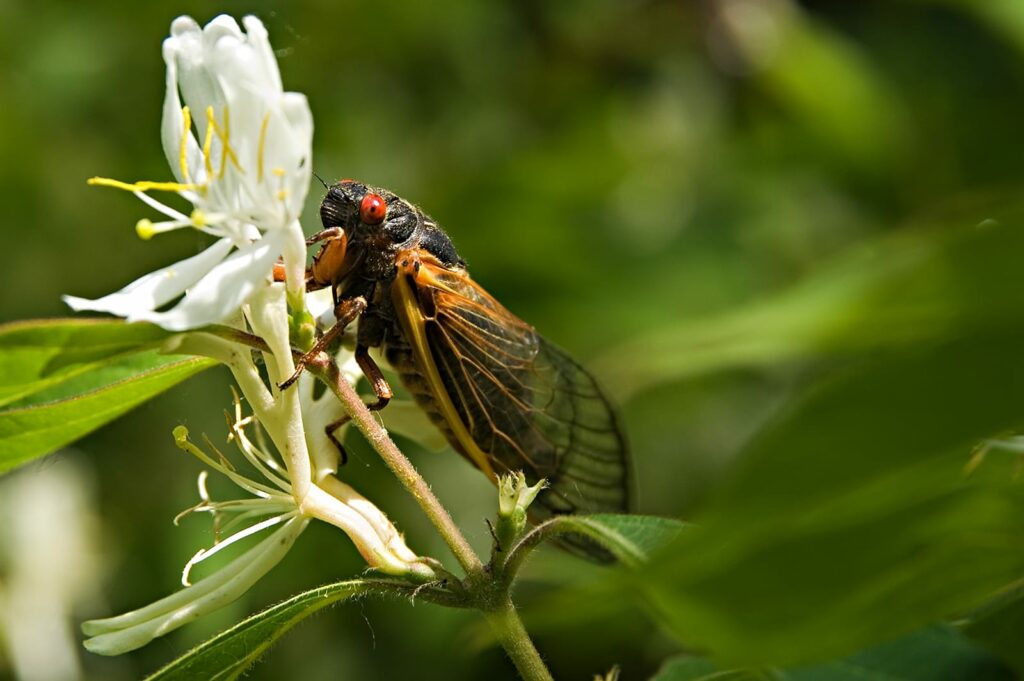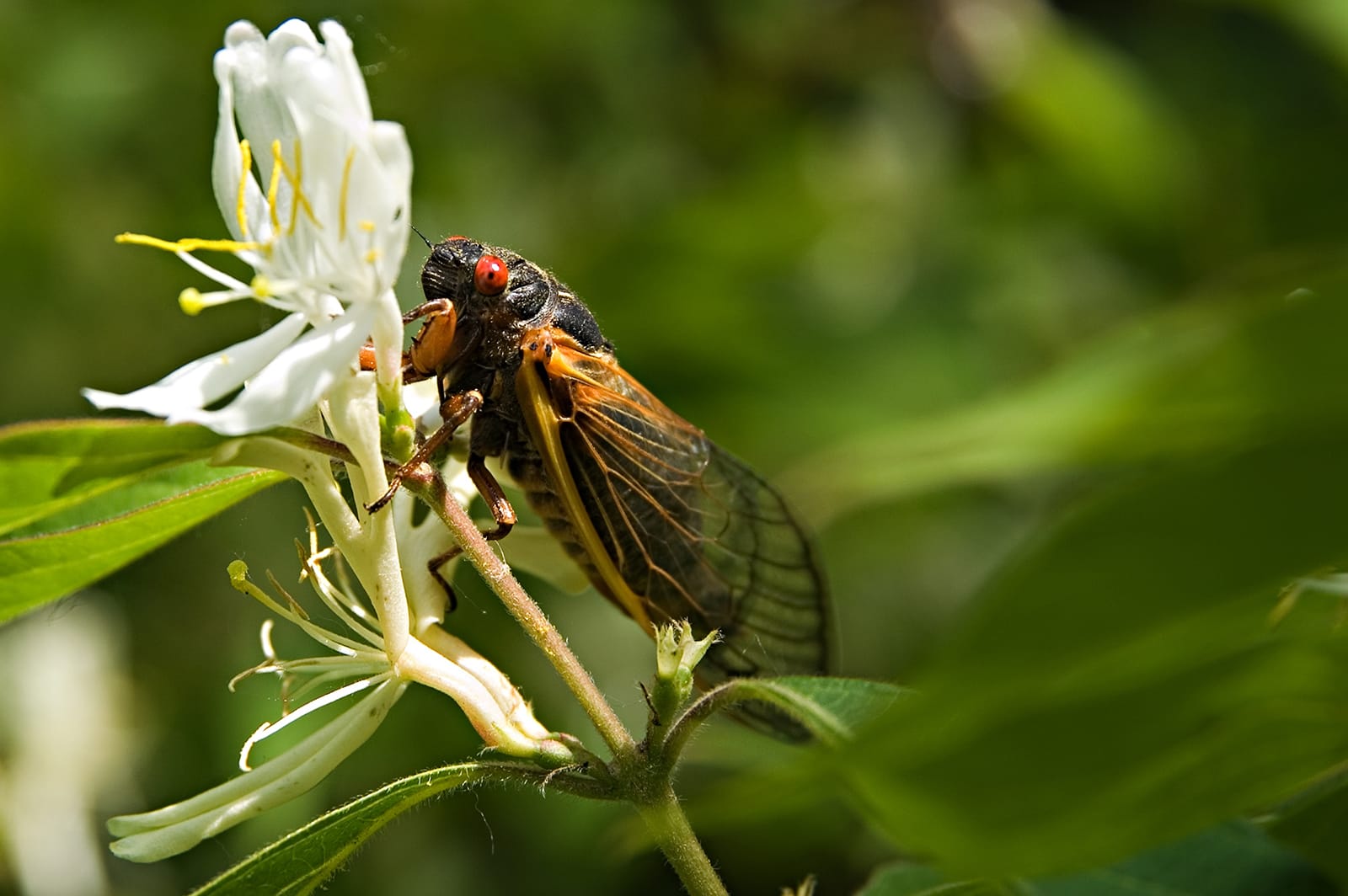
Contents

This summer will vary from those in years past, and you will tell by the sounds you hear. When you first hear the loud buzzing sound, you recognize that the cicadas have emerged, ready to mate, lay eggs, and continue with their cicada life cycle.
Cicadas are insects that are unique, as their life cycle extends far beyond that of your typical pest. Physically, they can be identified by their stout bodies, broad heads, clear-membraned wings, and large compound eyes. However, you will hear a cicada much sooner than you would see one.
Loud buzzing and clicking noises are amplified by the huge number of cicadas that are active in the area. Females are silent, but the males create this sound by vibrating membranes on their abdomens. Through different sounds, cicadas can use their calls to attract mates or to express alarm.
You won’t hear this noise every summer, though. Cicadas emerge periodically, only every 13 or 17 years. The cicadas you will see this year are part of what is labeled Brood X, and while some from this brood emerged in some areas after 13 years, the rest will make their way into the world this summer.
The cicada life cycle is broken up into three stages, egg, nymph and adult. A female cicada can lay 400 eggs spread across a large area, typically in trees, twigs or branches. Eggs will hatch after six to 10 weeks, and the nymph will then dig itself in the ground, feeding off the liquids of plant roots.
That nymph will continue to develop underground slowly before molting its shell and surfacing as an adult, ready to begin the cycle again as an adult to mate and lay more eggs. It isn’t random when they emerge, but cicadas wait until the ground temperature is about 65 degrees Fahrenheit, which usually happens in the first couple days after the outside air temperature reaches the 80s.
Nearly 3,400 different species of cicada emerge every two to five years. But it is not clear why this brood of cicadas has such an odd life cycle. Some scientists have theorized that it has something to do with predators. Most predators have shorter life cycles, and those could range from two years, five years, or 10 years. By emerging every 13 or 17 years, cicadas can avoid coming out when a predator population is booming.
Fortunately, the sound is the only thing that can bug humans. They do not sting or bite, instead they care only about feeding and mating. Cicadas can be clumsy during flight, so they may fly into people or objects.
Brood X will not stick around for long, and the damage they can cause is minimal. They might cause some cosmetic damage to trees when they lay their eggs, and you can find some shells that have been shed near trees or on the ground.
Cicadas are not too aggressive or dangerous, but they won’t be the only pests out this summer. For more information on how to prevent pests from taking over your yard and garden, call Van Den Berge Pest Control today at 616-392-7367.
Trust the locally owned, widely renowned experts at Van Den Berge Pest Control for all of your pest needs. With over 100 years of combined experience throughout the Holland, MI-based pest control team, you know you’re in excellent hands with our state-certified experts.
Recent Posts
Comparing Termite Treatment Costs: A How-To Guide
When you’re faced with a termite infestation, understanding treatment costs is vital for effective management.
Understanding Exterminator Costs for Mosquito Control
Imagine you own a large backyard and decide to hire a mosquito exterminator. You might
What Are Average Exterminator Costs for Mosquito Control?
When it comes to mosquito control, understanding average exterminator costs is essential for effective management.
